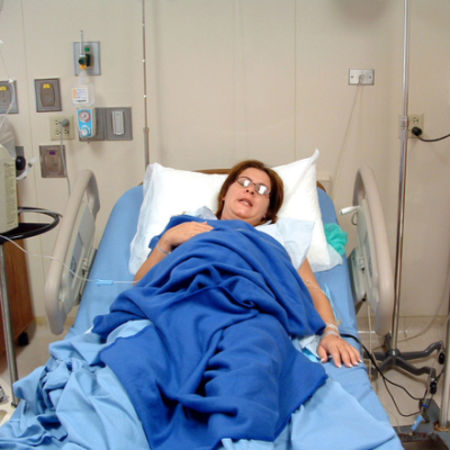There are two simple issues that dermatologists need to consider when conducting full-body skin cancer examinations: respect the patient’s preference for the observing physician’s gender, and how or if they wish their genitals examined.
These conclusions result from research conducted by the University of Pittsburgh School of Medicine and published in JAMA Dermatology.
“This study identifies barriers to getting skin checks. Giving patients choices that reduce embarrassment during an exam may make a person more likely to get regular skin checks, leading to higher rates of skin cancer detection,” said lead author Laura Ferris, M.D., Ph.D., associate professor, Department of Dermatology, Pitt School of Medicine and member of the Melanoma Programme, University of Pittsburgh Cancer Institute.
According to estimates, one in five people will develop skin cancer during their lifetime. Rates of melanoma, which account for less than one percent of skin cancer cases but the vast majority of skin cancer deaths, have tripled over the last 40 years.
The best way to prevent skin cancer is to use adequate protection during sun exposure, perform regular self-examinations, and, for those patients at increased risk of developing skin cancer, obtain annual full-body screenings from a dermatologist, said Ferris.
The current study was born out of an observation from Ferris’ own dermatology practice: many women wanted female physicians and were uncomfortable having male students in the room during their exams. While a strong preference for a same gender physician has been documented among patients undergoing colonoscopies, there wasn’t much data available about dermatology, Ferris explained.
In the new study, the researchers at three institutions, including UPMC, administered an anonymous survey to 443 adults undergoing a full-body screening for skin cancer.
Overall, people generally preferred a physician who shared their gender. Breaking the data down by gender, a third of women and nearly a fifth of men expressed a gender preference. Among this group, nearly all (99 percent) of the women preferred a female physician, and almost two thirds of the men preferred a male physician.
The biggest predictor of preferring a female physician among women was being under age 30. Young women have one of the fastest growing rates of melanoma, so taking physician gender preference into account in this group may have an especially large impact, Ferris noted.
Typically, patients are asked to completely disrobe for a skin cancer screening. When asked about clothing preferences, nearly half of women and 40 percent of men preferred to leave their undergarments in place during the exam.
“What we learned is that a substantial number of people preferred to leave their undergarments on and have us work around them,” said Ferris.
Less than one percent of melanomas are found in the genital region, so with 31 percent of women and 13 percent of men preferring not to have their genitals examined at all, another important message from the study is that physicians need to balance the benefit of occasionally finding a genital melanoma with causing a lot of people discomfort or anxiety, she added.
“When we think about the relative risks and benefits of cancer screening, if we’re causing people discomfort, then we need to think of that as doing harm. Our study provides some easy ways to reduce that harm,” Ferris said. “In the age of personalised medicine, taking simple steps, such as offering a choice of physician gender and degree of disrobement during an examination, can allow us to personalise the skin cancer screening examination to minimise discomfort.”
Reference:
Patient Preferences During Skin Cancer Screening Examination, Laura K. Ferris, MD, PhD, Neil Houston, B.A., and Westley Mori, B.A., of Pitt School of Medicine; Aaron Secrest, M.D., Ph.D., and Mark Eliason, M.D., both of University of Utah; and Ryan Harris, M.D., and Charles Phillips, M.D., both of East Carolina University. JAMA Dermatol. Published online May 11, 2016. doi:10.1001/jamadermatol.2016.1005























